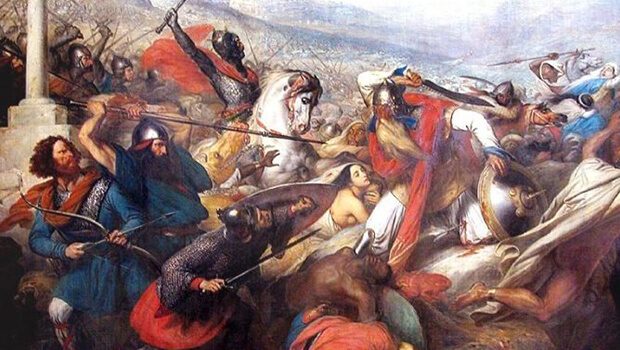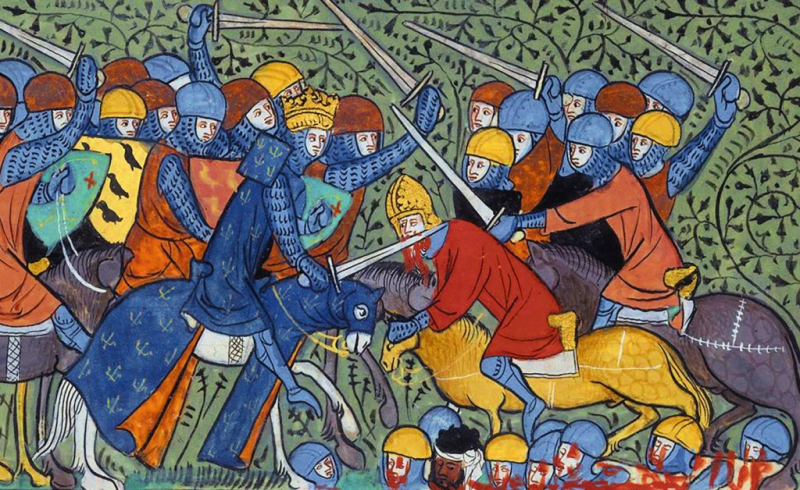Battel of Tours
The Battle of Tours, which was fought on 10 October 732 and was a crucial engagement in the Umayyad invasion of Gaul, was also known as the Battle of Poitiers and, according to Arab accounts, the Battle of the Highway of the Martyrs. As a result, Charles Martel's Frankish and Aquitanian armies defeated the Umayyad Caliphate's invading army, which was led by Abdul Rahman Al-Ghafiqi, the ruler of al-Andalus.
The surviving sources provide conflicting information regarding the battle's specifics, including the number of participants and its precise location. According to the majority of sources, the Umayyads had a greater force and more losses. Notably, the Frankish soldiers didn't appear to have heavy cavalry in the battle. Near the border of the Frankish realm and the then-independent Duchy of Aquitaine under Odo the Great, the battleground was somewhere between the cities of Poitiers and Tours in Aquitaine in western France.
After the battle, the Umayyad army withdrew after Al-Ghafiqi was slain in action. The conflict contributed to establishing the Carolingian Empire and Frankish rule over western Europe for the following century. Most historians concur that "the Battle of Tours established Frankish hegemony in western Europe and altered that continent's destiny".
The Battle of Tours is a resounding triumph for Christianity's survival that prevents a tsunami of Islam from engulfing all of Europe. While the Battle of Yarmouk was an excellent win for cavalry, Charles Martel's name was forged so that his nephew Charlemagne had a foundation upon which to subsequently establish the Carolingian empire.













